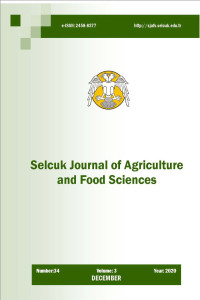Abstract
This study assesses the greenhouse gases (GHG) emissions of sugar beet production under different irrigation and nitrogen fertilizing strategies. This manuscript is an evaluation of the production inputs used in a research carried previous on sugar beet and its conversion into GHG emissions equivalent. This paper evaluates the potential for environmental mitigation, including the reduction of total GHG emissions from agricultural inputs in sugar beet production by managing irrigation and nitrogen fertilizing. In this context, the nine treatments based on three different irrigations (full irrigation, conventional deficit irrigation, partial root drying irrigation) and three nitrogen fertilization strategies (full nitrogen, partial deficit nitrogen, moderate deficit nitrogen) were assessed. The results of evaluation showed that DI-N1 strategy can reduce irrigation water and nitrogen use up to 25% compared to control treatment (FIN). In addition, this strategy saved 25% of electricity consumption use for irrigation. The analyse of pollution in this study led to very important findings: more environment-friendly irrigation and fertilization practices by using less water and nitrogen have a considerable potential for environmental mitigation in sugar beet production
Details
| Primary Language | English |
|---|---|
| Subjects | Agronomy |
| Journal Section | Research Article |
| Authors | |
| Publication Date | December 25, 2020 |
| Submission Date | October 2, 2020 |
| Published in Issue | Year 2020 Volume: 34 Issue: 3 |
Cite
Selcuk Agricultural and Food Sciences is licensed under a Creative Commons Attribution-NonCommercial 4.0 International License (CC BY NC).

